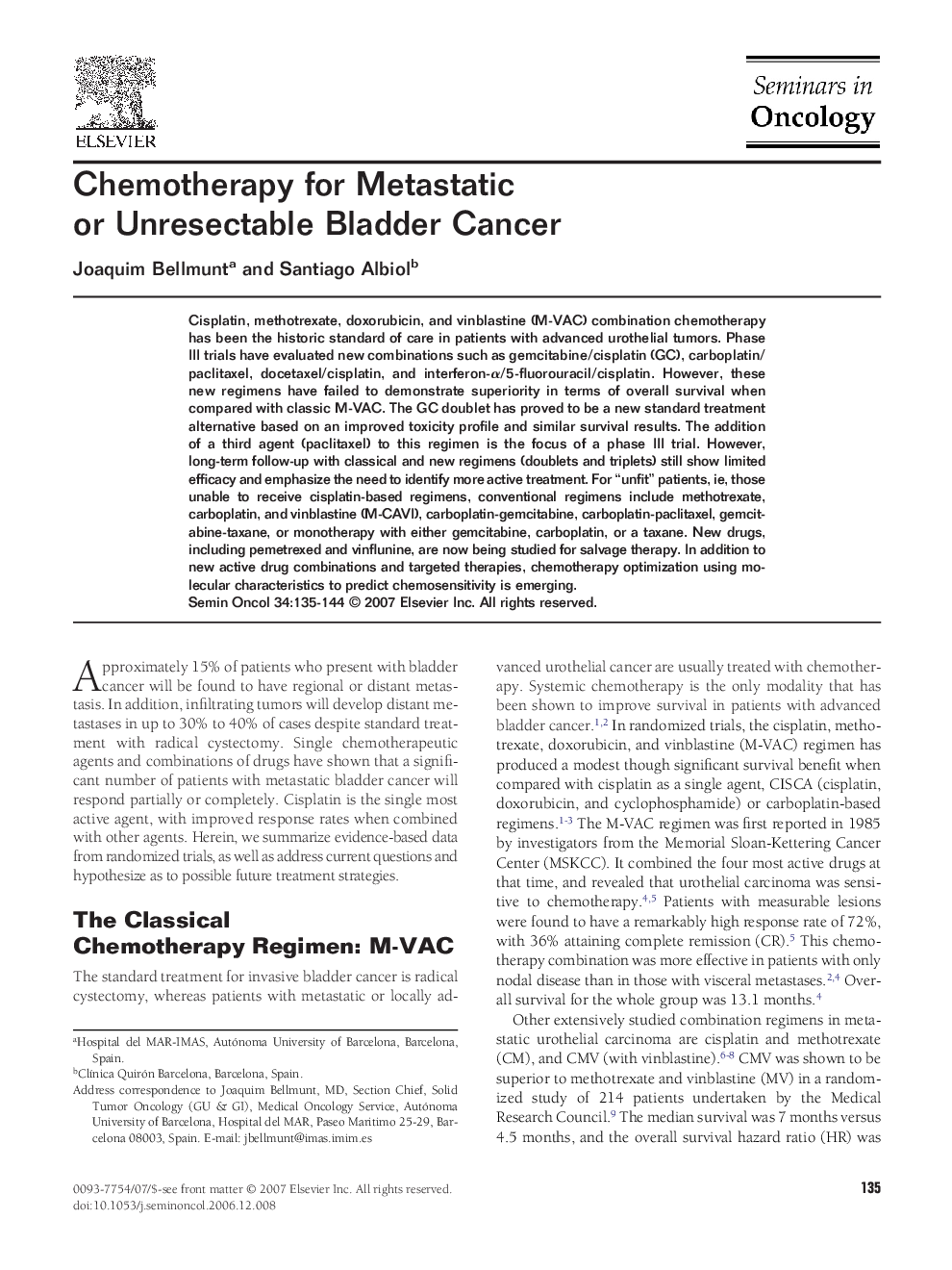| کد مقاله | کد نشریه | سال انتشار | مقاله انگلیسی | نسخه تمام متن |
|---|---|---|---|---|
| 2162914 | 1091278 | 2007 | 10 صفحه PDF | دانلود رایگان |
عنوان انگلیسی مقاله ISI
Chemotherapy for Metastatic or Unresectable Bladder Cancer
دانلود مقاله + سفارش ترجمه
دانلود مقاله ISI انگلیسی
رایگان برای ایرانیان
موضوعات مرتبط
علوم زیستی و بیوفناوری
بیوشیمی، ژنتیک و زیست شناسی مولکولی
تحقیقات سرطان
پیش نمایش صفحه اول مقاله

چکیده انگلیسی
Cisplatin, methotrexate, doxorubicin, and vinblastine (M-VAC) combination chemotherapy has been the historic standard of care in patients with advanced urothelial tumors. Phase III trials have evaluated new combinations such as gemcitabine/cisplatin (GC), carboplatin/paclitaxel, docetaxel/cisplatin, and interferon-α/5-fluorouracil/cisplatin. However, these new regimens have failed to demonstrate superiority in terms of overall survival when compared with classic M-VAC. The GC doublet has proved to be a new standard treatment alternative based on an improved toxicity profile and similar survival results. The addition of a third agent (paclitaxel) to this regimen is the focus of a phase III trial. However, long-term follow-up with classical and new regimens (doublets and triplets) still show limited efficacy and emphasize the need to identify more active treatment. For “unfit” patients, ie, those unable to receive cisplatin-based regimens, conventional regimens include methotrexate, carboplatin, and vinblastine (M-CAVI), carboplatin-gemcitabine, carboplatin-paclitaxel, gemcitabine-taxane, or monotherapy with either gemcitabine, carboplatin, or a taxane. New drugs, including pemetrexed and vinflunine, are now being studied for salvage therapy. In addition to new active drug combinations and targeted therapies, chemotherapy optimization using molecular characteristics to predict chemosensitivity is emerging.
ناشر
Database: Elsevier - ScienceDirect (ساینس دایرکت)
Journal: Seminars in Oncology - Volume 34, Issue 2, April 2007, Pages 135-144
Journal: Seminars in Oncology - Volume 34, Issue 2, April 2007, Pages 135-144
نویسندگان
Joaquim Bellmunt, Santiago Albiol,